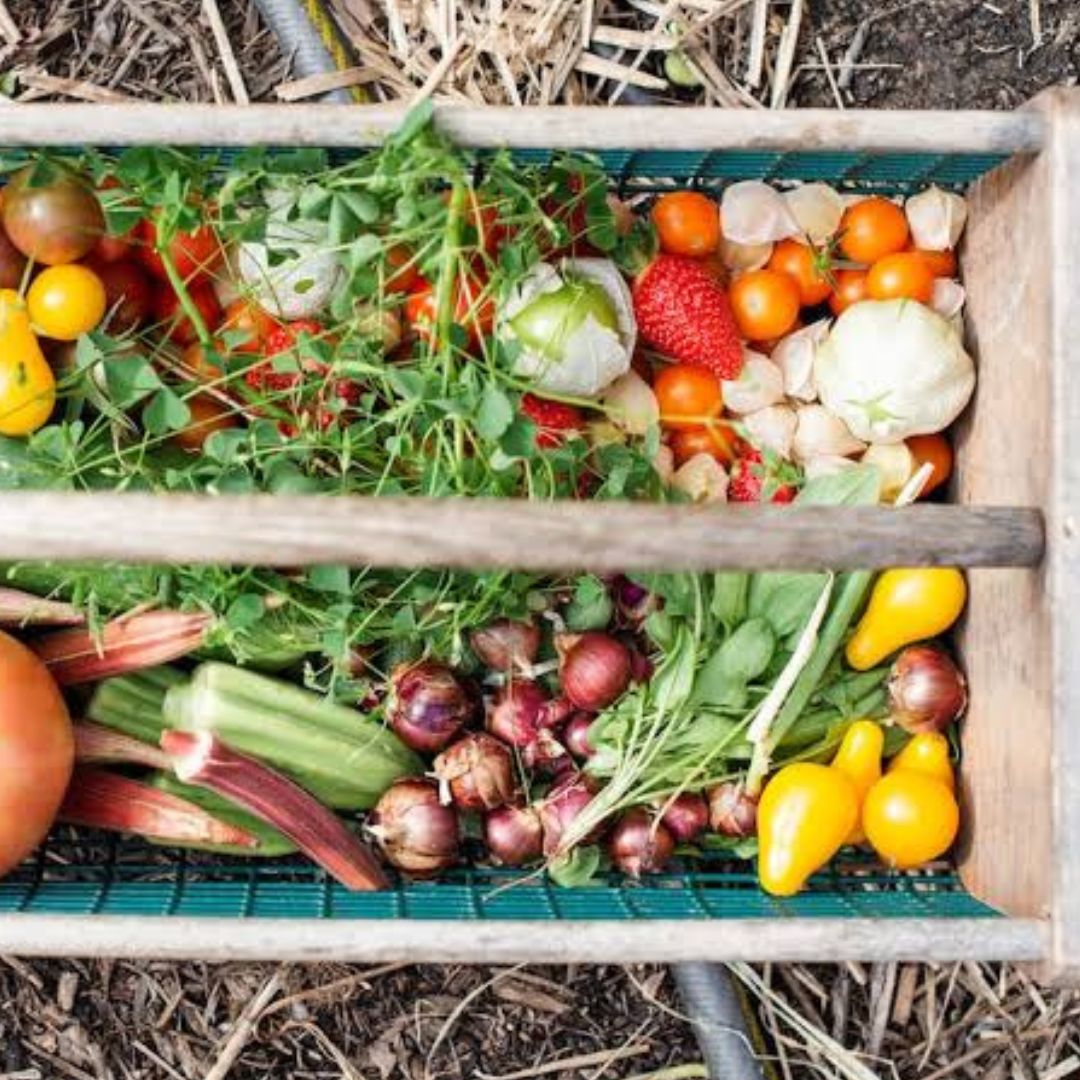
Image Credits: Unsplash (representational)
Bengal Sets Example To Counter Anaemia Among Women By Setting Kitchen Gardens
Writer: Laxmi Mohan Kumar
She is an aspiring journalist in the process of learning and unlearning many things. Always up for discussions on everything from popular culture to politics.
West Bengal, 10 Nov 2022 6:28 AM GMT
Editor : Jayali Wavhal |
She writes about gender issues, human interest, and environment.
Creatives : Laxmi Mohan Kumar
She is an aspiring journalist in the process of learning and unlearning many things. Always up for discussions on everything from popular culture to politics.
The state government, collaboratively with the village women, installed kitchen gardens to grow seasonal vegetables and fruits that would help nurture a healthy dietary pattern among women and tackle concerns of anaemia.
Combating malnutrition and anaemia among women and children has been a goal that the nation has actively pursued through a multitude of schemes and programmes. Reports by India's National Family Health Surveys (NFHS) and Comprehensive National Nutrition Surveys have repeatedly pointed out that India's nutritional status has been at high risk, with a high prevalence of malnutrition and micronutrient deficiency among children, adolescents, and women in the country. However, few states have taken up collaborative measures with the community to tackle this concern and have been setting an example for the rest.
Tackling Issues At Grassroots
As per data made available by the National Family Health Survey-5 (NFHS-5) in 2020, about 71 per cent of adolescent girls in West Bengal are anaemic, as compared to the national average of 59.1 per cent. The previous report of NFHS-4 also suggested a worrying trajectory, with the anaemia rates at 62 per cent in the state. This brought in a need to improve the health conditions of women and girls by bettering their nutritional status.
Murshidabad district of West Bengal, with 73 per cent of their women reported to be anaemic, took a step ahead with the idea of community nutrition gardens. These are nutritional spots managed collectively by members of the community after having received sufficient information and training from credible sources. The growth of community gardens has been attributed to the enhanced dietary diversity in the district. On a national level as well, kitchen gardens have been promoted as a tool to tackle the hidden hunger issue.
Jayati Mitra, Nutrition officer of the United Nations International Children's Emergency Fund (UNICEF) in West Bengal, conveyed that the kitchen gardens are bringing about seasonal fruits and vegetables that are "good sources of micronutrients and bring positive nutrition behaviour change in terms of feeding choice and practices." Pouring praises about the initiative, UNICEF's Mitra noted that most of the micronutrient deficiency that causes anaemia, such as iron, folic acid, Vitamin A, B-12 and C, can be derived easily with the consumption of the seasonal vegetables and fruits grown in the kitchens of the villagers.
Promoting this initiative, the UNICEF branch in West Bengal has been extending technical support and other aid to the government to take the project ahead. The West Bengal government's agriculture department utilised these appropriately into providing self-help groups (SHGs) with seeds and necessary guidance to boost healthy consumption patterns among women. It further trickles down to the Gram panchayats, who have spent funds on developing kitchen gardens.
Saharan Bibi, Pradhan of Raipur Gram Panchayat in Murshidabad, said, "Five kitchen gardens beside the ones at the ICDS centres have been funded." Adding on to it, he claims that these centres collaboratively grow organic vegetables and replace the mass-produced market vegetables with them in their diet.
Seasonal Vegetables Round The Year
Talking about the seeds made available to the people, Assistant Director of Agriculture Moumita Mazumdar said, "apart from seasonal vegetables, seeds and saplings of other big plants like drumstick and papaya are also provided to them for a year-long supply of vegetables to their kitchens." Additionally, by providing seeds, the agriculture officials are equipped to train the villagers to scientifically take care of their vegetable gardens and make optimum use of them through bio-pesticides and organic manures.
Leaders of the SHGs assist the officials with the distribution of seeds and spreading information regarding seasonal vegetables and fruits. Many SHG members have been receiving training from either senior members or officials for over a year. Now, they are taking along their training and understanding to the community members.
One such member, Sanjima Khatun, a 28-year-old homemaker, has been growing vegetables in her kitchen garden, as well as selling the extra produce in local markets as a source of income. A report by New Indian Express quoted Sanjima saying, "Vegetables like okra, red spinach, bitter gourd, sweet gourd, and bottle gourd are grown in my small patch of land. These vegetables are healthier than the ones available in the market as only compost and organic manures are used as fertiliser."
Just like Sanjima, many other village women have been urged to grow vegetables in the small patches of land available to them. An SHG leader, Jakiran, stated that their group extends support to their neighbours through provisions such as seeds and organic fertilisers from time to time. Due to this, seasonal vegetables are available in the village around the year. It is also known to save a lot of money and invest in healthy and sustainable living.
Also Read: POSHAN Abhiyaan's 5th Edition Ropes In Panchayat And Local Bodies To Spread Awareness On Nutrition
 All section
All section














